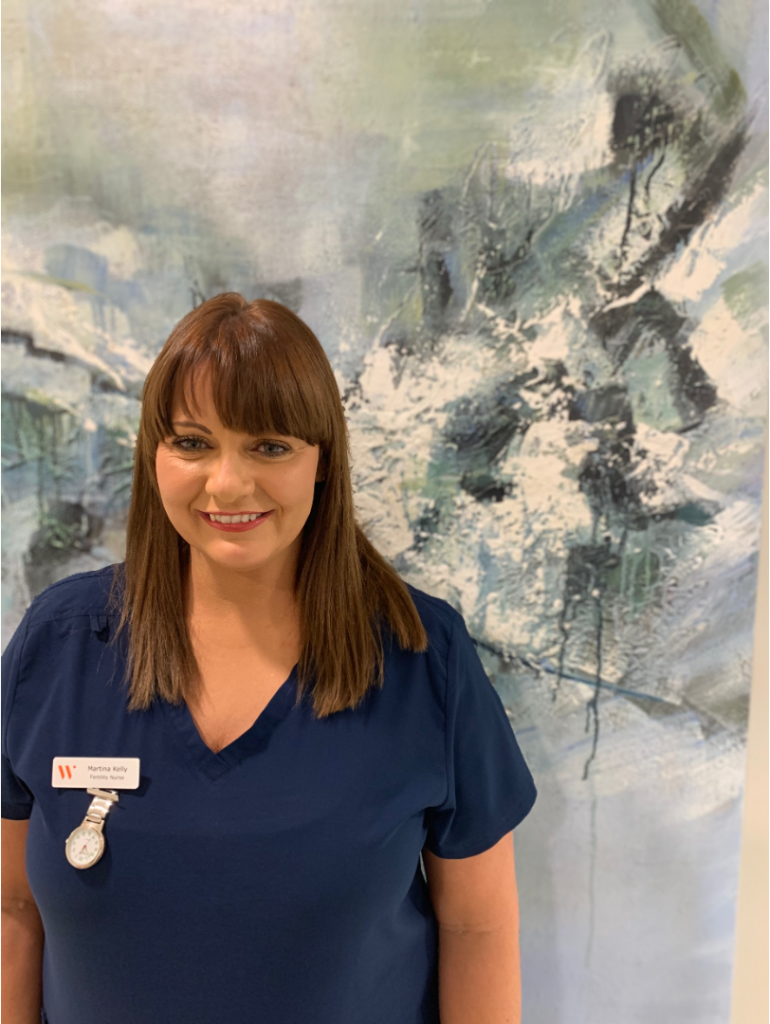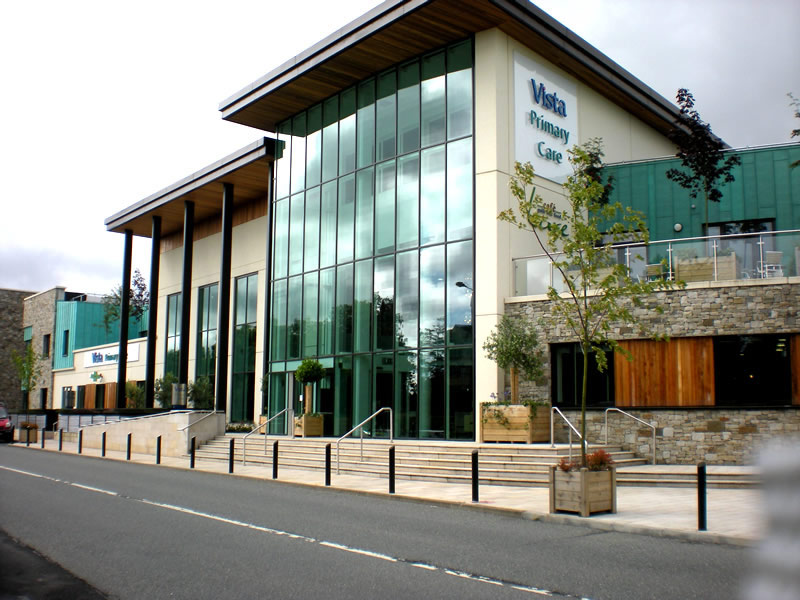By Sharon Ní Chonchúir
Featured Friday 19 June 2020: Read on the Irish Examiner Website
Most fertility treatments were put on ice during the lockdown. Now clinics have reopened, how will the delay affect women’s chances of having a baby, asks Sharon Ní Chonchúir
There was huge relief for women and couples when Ireland’s fertility clinics reopened their doors at the beginning of May. Like most of the country, the clinics had closed mid-March, which had put all fertility treatments on indefinite hold.
One in six couples in Ireland struggles to conceive within one year of having unprotected sex, and up to 6,000 people undergo fertility treatment every year.
Aisling* (29) and her husband have unknown fertility issues and have been having fertility treatment since 2018. They have been through two ovulation induction cycles, one IVF cycle and two miscarriages. They were about to start IVF once more when the clinics closed in March. She is still struggling to come to terms with the closure of clinics.
“I am so upset with how couples who have to go through IVF were treated,” she says. “We already have to endure extreme pain and hurt, and this was just another way in which we were punished for something our bodies cannot do for us. Every month matters when you feel your time is running out. It could make the difference between you getting to be a mother or not. We are young so we have time, but we were still devastated when our cycle was cancelled.”
DECISION TO CLOSE
Fertility clinics are medical facilities so under government guidelines they could have remained open during lockdown. However, on March 14 the European Society of Human Reproduction and Embryology (ESHRE) recommended that: “all fertility patients considering or planning treatment, even if they do not meet the diagnostic criteria for Covid-19 infection, should avoid becoming pregnant.”
Irish fertility doctors understood this prudent approach.
“There was uncertainty about how safe the virus was for pregnant women,” says Dr John Waterstone, medical director of the Waterstone Clinic. “The previous coronavirus outbreak – SARS in 2003 – was particularly unsafe for pregnant women, so it seemed reasonable to be cautious.”
Closing the clinics also gave staff the opportunity to put measures in place so they could look after patients safely. “We did not want to do anything to encourage the spread of the virus,” says Dr John Kennedy, medical director of the Sims Fertility Clinic in Dublin. “We had no PPE and no means of applying social distancing, so we decided that the safest thing to do was to put everything on hold.”
In the Sims Clinic, all treatment stopped with immediate effect on March 16. “Some patients got to freeze embryos before they stopped but some – thankfully not that many – were only halfway through their cycles,” says Dr Kennedy. “They were the ones who suffered the most.”
The Waterstone Clinic stopped all treatments apart from those who were mid-way through a cycle. “We allowed those patients to proceed to egg collection and embryo freezing,” says Dr Waterstone. “We still had a lot of upset people though. The passage of time is everything in fertility, and six months, either way, can make a huge difference to the success rates for older women.”
PLANS ON HOLD
Pauline* (40) is one of those women. She and her husband have a toddler who was conceived through IVF. “Our first cycle failed but our second cycle resulted in eight embryos and we used five of those to have our baby,” she says. We tried for a little brother or sister in January but that failed. We were about to go again in April when it was cancelled.”
A healthcare worker, Pauline understands why treatments had been paused, but she struggles to accept it. “There is so much that is out of your control when you have fertility issues,” she says. “This is just one more layer of uncertainty. I am on steroids at the moment [for an unrelated issue], so my doctors are reluctant for me to try getting pregnant right now. “I get it, but will I be able to try this year? Next year? Not knowing is upsetting and being at home alone in lockdown makes the experience all the harder.”
Aisling questions why advice on avoiding pregnancy was not issued to the public in general. “It’s yet another example of us being treated unfairly for something that’s out of our control,” she says.
Dr Kennedy understands why she might feel discriminated against but believes there was a valid reason. “This decision is bound to have caused anger as timing is so crucial in fertility,” he says. “But women who conceive using IVF are a higher risk group and there may be additional risks involved in their pregnancies [these include higher rates of pre-eclampsia, gestational diabetes and placenta praevia as well as higher risks of having an induction and caesarean section during labour]. ESHRE may not have wanted to overburden the health system at a time when it might be struggling.”
ONGOING SUPPORT
Supports were offered to help women and couples to cope with the emotional impact of the delay to their treatment. Marian Ó Tuama, psychotherapist at the Waterstone Clinic, moved quickly to offer counselling online.
“I immediately started Zoom calls with patients and posted videos of breathing exercises and cognitive behavioural therapies on our Instagram page to help them deal with their anxiety,” she says. Anxiety was one of the biggest issue for her patients during lockdown. “Nobody knew how long it would be before treatment would resume,” says Ó Tuama. “Would it be weeks, months, or years? For women and couples already worried they may have left it too late, any delay adds to their fears.”
The lockdown imposed its own pressures too. “They were stuck at home with little else to do but think about time passing,” says Ó Tuama.
The National Infertility Support and Information Group (NISIG) has also moved its meetings online.
Its spokesperson Niamh Magee says that emotions have been running high during this time. “So many women have said that they want to scream when they hear all the comments about the pending baby boom due to the lockdown,” she says. “Because of the delays to their treatment, they worry that time is passing and that another year will go by without a baby for them to hold at the end of it.”
INFECTION PREVENTION
On April 23, ESHRE recommended that fertility treatments could recommence once safeguards were put in place to protect patients and staff.
“A lot had changed since March and the medical evidence showed that Covid-19 didn’t seem to have a harmful impact on pregnancy,” says Dr Kennedy. Reopening the doors did not mean reverting to how things were pre-pandemic. Conditions are different now. Preventing infection is paramount.
“We’re extremely cautious about bringing infection into the clinic,” says Dr Waterstone. “Consultations now mostly take place over the phone or online. Everyone who comes to the clinic wears masks and we ask partners to wait outside in their cars if they are not needed inside.”
“Our days are longer,” says Dr Kennedy. “We’re seeing the same volume of patients, but it takes more time because of frequent cleaning and social distancing. This will become a normalised part of the way we work in the future.”
Clinics are not yet able to offer their full range of services. Some investigational surgeries are on hold. Some supportive drug treatments like immunotherapy and steroids are not available. Closed borders mean that those intending to travel abroad cannot do so and nor can women and couples avail of donor eggs and sperm from other countries.
“There are still lots of hurdles in the paths of couples trying to conceive,” says Magee.
While Dr Waterstone is satisfied that clinics are safe from Covid-19, he thinks the government should do more to protect pregnant women. “We’re ultra-cautious in the clinic but we can’t control the outside world,” he says. I worry about my patients being exposed to risk on crowded public transport, for example.”
He would like to see the government make mask-wearing mandatory. “Look at Hong Kong,” he says. “It’s right next to China but its death rate from Covid-19 was 0.5 per million inhabitants. Ours is more than 300. The difference is that they all wear masks. I think the authorities have been negligent by not making mask-wearing compulsory. It’s an easy measure for them to enforce and it keeps everyone – including pregnant women – safe.”
HIGH DEMAND
Despite the challenges that persist for those seeking fertility treatment, Drs Waterstone and Kennedy have found that demand is as high as ever.
“Covid-19 won’t be a death knell to IVF treatment,” says Dr Kennedy. “If anything, it’s underlined the impermanence of all things and the importance of getting what you want out of life.”
That is certainly true for Pauline and her husband. “All we want is a brother or sister for our little toddler,” she says. “At the very least, we’d like to be able to try.”
Ó Tuama has been surprised by how receptive people have been to the changes in how IVF treatment is now offered. “People are so adaptable when they want something,” she says. “Any step forward gives them hope. It’s much better to do something – anything – than to wait and wonder if those months of delay meant that you never had a baby.
Aisling understands that urge to do something rather than nothing. “I’m currently waiting to start a new round of IUI, but I have no date from the clinic as there is still a backlog from all the cancelled procedures,” she says. “The waiting is absolutely agonising.”
Having their treatment cancelled with no notice was very distressing for these people.
IT TAKES A BIG TOLL ON US AS A COUPLE
Women undergo most of the medical procedures associated with IVF. But having fertility treatment can be an emotionally draining experience for hopeful dads too.
“Pauline* and I didn’t meet until we were in our late 30s, so we were late trying to start a family,” says Ethan. “We were thrilled when we had a baby after our second IVF cycle, and we would both love to have another. We implanted one of our remaining three embryos in January, but it did not work. That was a big disappointment. We were all geared up to try again in April only to be disappointed again when the clinics closed.”
Ethan worries about what will happen if none of their remaining embryos implants successfully. “We’ll have to go through the entire process from the very beginning and that’s daunting,” he says. “t costs a lot, which is a huge consideration, and it takes a big toll on us both as a couple. You could drive yourself mad if you were to think about it too much.”
For now, Ethan believes his place is beside his wife, supporting her as they wait to restart their IVF treatment. “All I’ve had to do so far is to produce a sperm sample in a cup, which wasn’t all that hard,” he says. “Pauline is the one who has had to take all of the vitamins, minerals, and various medications as well as undergo invasive procedures. That has been tough going and I see my job as looking after her.”
He and his wife have both grieved their IVF failures but remain hopeful that their next attempt will be successful. “We’ve had our fair share of heartbreak throughout our IVF treatment, but we have a beautiful toddler to show for it,” he says. “There’s nothing either of us would like more than to have another baby so that our two children could grow up together.
“If we get to do that, everything will be worth it.”
*Names have been changed
https://www.irishexaminer.com/breakingnews/lifestyle/healthandlife/fertility-on-hold-will-ivf-delays-impact-womens-chances-of-conceiving-1006121.html







